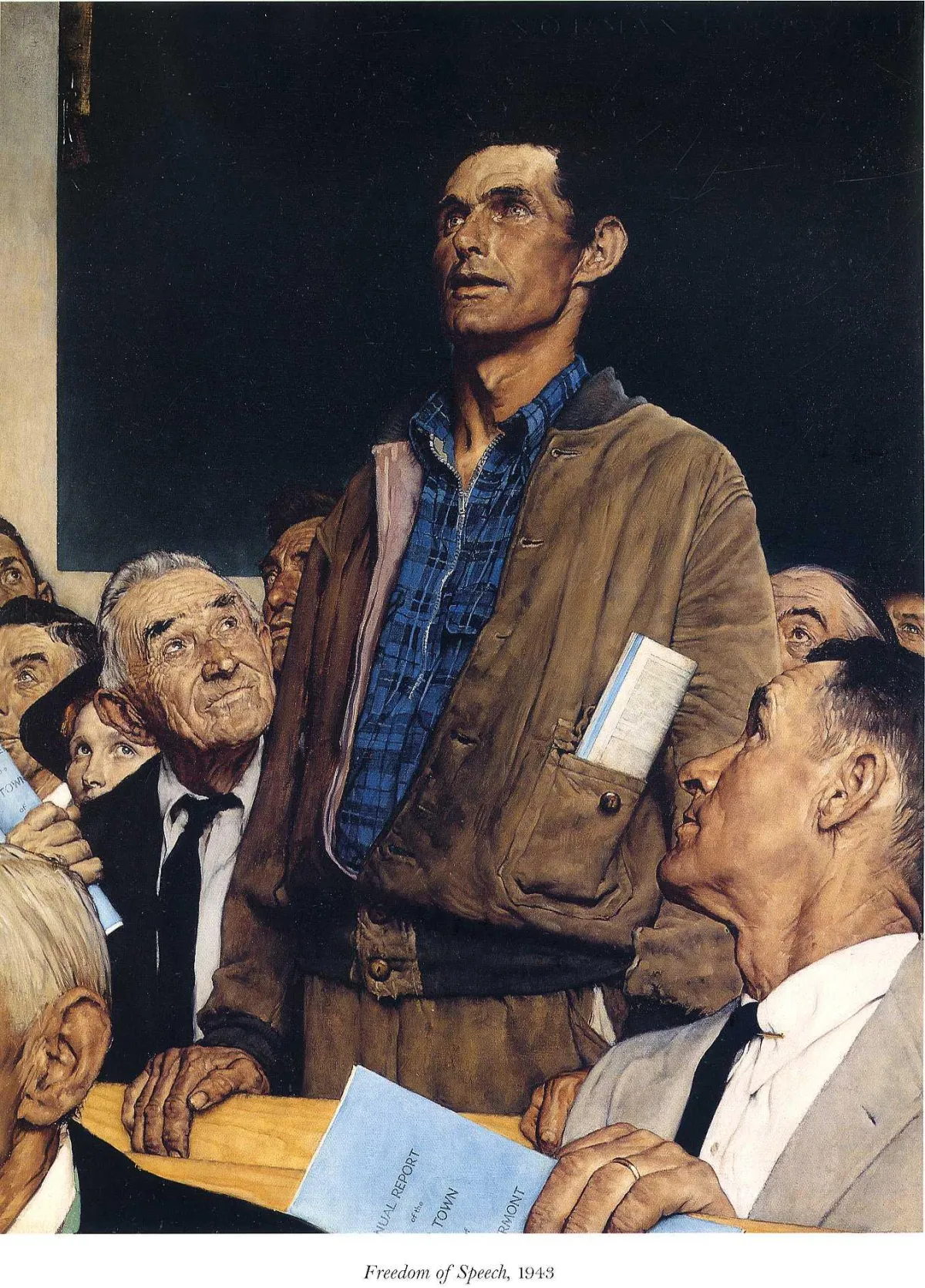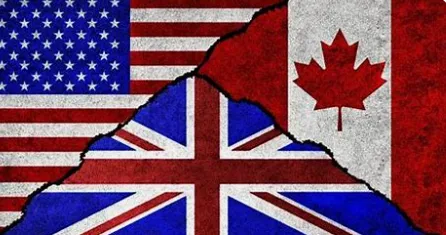
First Amendment
Why the First Amendment Was Created and Its Enduring Importance
The First Amendment to the United States Constitution stands as a cornerstone of American democracy, encapsulating the fundamental principles of free speech, press, religion, assembly, and petition. Ratified in 1791 as part of the Bill of Rights, it was crafted with deliberate intent to protect individual liberties and ensure a free society. Today, in an era of rapid technological change, polarized politics, and global challenges, the First Amendment’s protections are more vital than ever. This article explores the historical origins of the First Amendment, the reasons behind its creation, why its principles remain indispensable in the modern world, and how its protections differ from those in many other countries.
The Historical Context of the First Amendment
To understand why the First Amendment was created, we must step back to the late 18th century, when the newly formed United States was grappling with its identity and governance. The American Revolution (1775–1783) was not just a rebellion against British rule but a rejection of authoritarian control over individual thought and expression. The colonists had experienced firsthand the stifling effects of censorship, religious persecution, and restrictions on assembly under British colonial policies.
Colonial Experiences with Censorship
In the colonial era, the British Crown tightly controlled the press. Publications critical of the government were often suppressed, and printers faced prosecution for seditious libel—a crime defined as any speech or writing that criticized the government, regardless of its truth. For example, in 1735, John Peter Zenger, a New York printer, was tried for seditious libel after publishing critiques of the colonial governor. His acquittal, based on the argument that truth should be a defense against libel, became a rallying point for advocates of press freedom.
Enlightenment Ideals
The First Amendment was also shaped by Enlightenment thinkers like John Locke, Voltaire, and Montesquieu, whose ideas about individual liberty and the role of government influenced the Founding Fathers. Locke’s writings on natural rights emphasized that individuals possess inherent freedoms, including the right to express their thoughts. Voltaire championed free speech, famously stating, “I disapprove of what you say, but I will defend to the death your right to say it” (a sentiment later attributed to him). These ideas resonated with American revolutionaries like Thomas Jefferson and James Madison, who saw free expression as essential to self-governance.
The Constitutional Debate
When the U.S. Constitution was drafted in 1787, it initially lacked explicit protections for individual rights, focusing instead on the structure of government. This omission alarmed Anti-Federalists, who feared a strong central government could become tyrannical without safeguards for personal liberties. The Bill of Rights, including the First Amendment, emerged as a compromise to address these concerns and secure ratification of the Constitution.
James Madison, often called the “Father of the Constitution,” drafted the First Amendment based on state constitutions, particularly Virginia’s Declaration of Rights, which protected freedoms of speech, press, and religion. The amendment’s language is concise yet profound:
“Congress shall make no law respecting an establishment of religion, or prohibiting the free exercise thereof; or abridging the freedom of speech, or of the press; or the right of the people peaceably to assemble, and to petition the Government for a redress of grievances.”
This single sentence encapsulates five distinct freedoms, each designed to protect different facets of human expression and belief.
Why the First Amendment Was Created
The First Amendment was created to ensure that the new American government could not replicate the oppressive practices of European monarchies. Its core purpose was to safeguard individual autonomy and foster a democratic society where ideas could flourish without fear of government retribution. Let’s break down the reasons behind each of its protections:
1. Freedom of Religion
The dual clauses on religion—prohibiting the establishment of a state religion and protecting the free exercise of faith—addressed the colonists’ experiences with religious persecution. Many had fled Europe to escape state-sponsored churches that punished dissenters. The Founding Fathers sought to create a nation where individuals could worship (or not worship) freely, without government interference. This separation of church and state was revolutionary, ensuring that no single religion could dominate public life.
2. Freedom of Speech
Free speech was seen as essential to self-governance. The Founders believed that citizens must be able to openly debate ideas, criticize their government, and express dissenting views to prevent tyranny. As Thomas Jefferson wrote in 1787, “The basis of our governments being the opinion of the people, the very first object should be to keep that right.”
3. Freedom of the Press
A free press was viewed as a watchdog against government overreach. By protecting the ability to publish without censorship, the First Amendment ensured that journalists and writers could expose corruption, inform the public, and hold leaders accountable. This was particularly critical in a democracy, where an informed citizenry is necessary for effective governance.
4. Freedom of Assembly
The right to assemble peaceably allowed citizens to gather, organize, and protest, fostering collective action to influence policy or address grievances. This right was rooted in the colonists’ experiences with public demonstrations, such as the Boston Tea Party, which galvanized revolutionary sentiment.
5. Freedom to Petition
The right to petition ensured that citizens could directly appeal to their government for change, reinforcing the principle that power derives from the people. This right empowered individuals to seek redress without fear of retaliation, a stark contrast to the unresponsive monarchies of Europe.
In essence, the First Amendment was a bold declaration that the government’s authority is limited, and the people’s right to express themselves—whether through speech, writing, worship, or collective action—is paramount.
Why the First Amendment Is More Important Than Ever
In 2025, the First Amendment faces new challenges and opportunities in a rapidly changing world. The rise of digital communication, social media, misinformation, and global interconnectedness has amplified the importance of its protections. Below are key reasons why the First Amendment remains a vital safeguard today.
1. The Digital Age and Free Speech
The internet and social media platforms like X have transformed how we communicate, giving individuals unprecedented reach to share ideas. However, this freedom comes with complexities. Governments, corporations, and even private platforms can exert pressure to censor speech, whether through content moderation policies, deplatforming, or legal restrictions. The First Amendment ensures that the government cannot broadly suppress speech, but debates over private platform moderation highlight the tension between free expression and harmful content, such as misinformation or hate speech.
For example, recent controversies over content moderation on platforms like X show the delicate balance between protecting free speech and addressing harmful rhetoric. The First Amendment provides a legal framework to challenge government overreach, ensuring that individuals can speak out even when private entities attempt to silence them.
2. Polarization and Political Discourse
The United States is more politically polarized than at any time in recent history, with deep divisions over issues like immigration, climate change, and social justice. The First Amendment protects the right to express controversial or unpopular opinions, which is crucial in a climate where dissent is often met with hostility. Without these protections, minority viewpoints—whether progressive or conservative—could be silenced, stifling debate and undermining democracy.
3. Threats to Press Freedom
Journalists today face significant challenges, including threats, harassment, and accusations of spreading “fake news.” The First Amendment’s protection of a free press remains essential to holding powerful institutions accountable, whether they are governments, corporations, or other entities. Investigative journalism, protected by the First Amendment, continues to uncover corruption and abuse, as seen in exposés on government surveillance or corporate malfeasance.
4. Religious Pluralism
As America becomes more religiously diverse, the First Amendment’s religion clauses are critical to ensuring that all faiths—and those with no faith—can coexist. Recent legal battles over religious exemptions, public displays of faith, and accommodations for minority religions underscore the ongoing relevance of these protections. The First Amendment prevents the government from favoring one religion over another, fostering inclusivity in a pluralistic society.
5. Grassroots Movements and Assembly
The right to assemble has fueled modern social movements, from Black Lives Matter to climate activism. In an era of global protests, the First Amendment ensures that citizens can gather to advocate for change without fear of government crackdowns. This right is particularly important as governments worldwide grapple with balancing public safety and civil liberties during protests.
6. Misinformation and the Marketplace of Ideas
The spread of misinformation online has sparked debates about regulating speech. The First Amendment’s commitment to a “marketplace of ideas”—where truth emerges through open debate rather than government control—remains a powerful counterargument to censorship. While misinformation poses challenges, suppressing speech risks undermining the very freedoms that allow society to correct falsehoods through dialogue and evidence.
7. Global Influence
The First Amendment serves as a model for free expression worldwide. In countries where speech, press, and religion are restricted, the U.S. example inspires activists and reformers. However, global trends toward authoritarianism and censorship highlight the need to protect these rights at home to maintain America’s moral authority on the world stage.
How the First Amendment Differs from Other Countries’ Protections
The First Amendment’s robust protections for speech, press, religion, assembly, and petition are unique in their scope and strength compared to many other countries. While some nations offer similar freedoms, the breadth, legal enforcement, and cultural emphasis on individual liberty in the U.S. set it apart. Below are key differences between the First Amendment and the approaches of other countries:
1. Broad and Absolute Language
The First Amendment’s language is notably absolute: “Congress shall make no law” abridging these freedoms. This stark prohibition contrasts with many countries where freedoms are granted with qualifications. For example, Canada’s Charter of Rights and Freedoms guarantees freedom of expression but includes a “reasonable limits” clause, allowing restrictions deemed justifiable in a democratic society. Similarly, Germany protects free speech under Article 5 of its Basic Law but limits it to prevent hate speech or Holocaust denial, reflecting historical sensitivities. The U.S. First Amendment, by contrast, has fewer exceptions, protecting even controversial speech unless it meets narrow criteria (e.g., incitement, obscenity, or defamation).
2. Limited Government Role in Regulating Speech
In the U.S., the government is largely barred from regulating speech, and courts have consistently upheld this principle through cases like Brandenburg v. Ohio (1969) and Texas v. Johnson (1989), which protected flag burning as expressive conduct. In contrast, many countries, including France, Australia, and India, impose stricter regulations on hate speech, blasphemy, or speech deemed to disrupt public order. For instance, France’s laws against hate speech can lead to fines or imprisonment for statements targeting race, religion, or sexuality, whereas the U.S. protects such speech unless it incites imminent lawless action.
3. Separation of Church and State
The First Amendment’s establishment clause, which prohibits a state religion, creates a strong separation between church and state, a principle less common globally. In countries like the United Kingdom, the Church of England remains the official state church, with the monarch as its head, and religious influence is embedded in governance (e.g., bishops sit in the House of Lords). Similarly, in nations like Saudi Arabia or Iran, religion is deeply intertwined with the state, and dissent from official religious doctrines can lead to severe punishment. The U.S. approach ensures that no religion receives preferential treatment, fostering greater religious pluralism.
4. Robust Press Protections
The First Amendment’s press protections are among the strongest in the world. The U.S. ranks highly on press freedom indices, such as the 2024 World Press Freedom Index by Reporters Without Borders, due to its legal safeguards against government censorship. In contrast, countries like China, Russia, and Turkey impose significant restrictions on the press, including state control of media, censorship of online content, and imprisonment of journalists. Even democratic nations like India and Brazil have seen increasing threats to press freedom, with journalists facing legal harassment or violence for critical reporting.
5. Right to Assemble and Protest
The First Amendment’s protection of peaceful assembly is broader than in many countries. In the U.S., protests are permitted with minimal restrictions, provided they remain nonviolent, as seen in major movements like the Women’s March or Black Lives Matter protests. In contrast, countries like Russia and Belarus require government approval for public gatherings, and unauthorized protests often lead to arrests. Even in democracies like France, authorities can ban protests for public safety reasons, a practice less common in the U.S. due to First Amendment protections.
6. Cultural and Legal Emphasis on Individual Liberty
The U.S. places a unique cultural and legal emphasis on individual liberty, rooted in its revolutionary origins and the First Amendment’s design. While countries like the United Kingdom, Canada, and Australia protect free speech, their legal systems often balance individual rights with collective interests, such as social cohesion or public safety. In the U.S., the individual’s right to speak, worship, or assemble typically takes precedence, even when it offends or disrupts. This contrasts with nations like Singapore, where speech is restricted to maintain “racial and religious harmony,” or South Africa, where hate speech laws are broader to address historical inequalities.
7. Global Exceptions and Authoritarian Regimes
In authoritarian regimes, such as North Korea, Cuba, or Eritrea, freedoms of speech, press, and assembly are virtually nonexistent. State-controlled media, surveillance, and harsh penalties for dissent suppress open expression. Even in semi-democratic states like Hungary or Turkey, governments have eroded press and speech freedoms through media consolidation and legal crackdowns. The First Amendment’s protections stand in stark contrast, offering a legal bulwark against such authoritarian tendencies.
Implications of These Differences
The First Amendment’s robust protections enable a vibrant, often contentious public sphere in the U.S., where diverse and even polarizing views can coexist. However, this comes with trade-offs, such as the challenge of addressing hate speech or misinformation without infringing on rights. Other countries’ more restrictive approaches may reduce certain harms but risk stifling dissent or empowering governments to silence critics. The U.S. model prioritizes individual autonomy, trusting that open debate will ultimately lead to truth and progress, even if the process is messy.
Challenges to the First Amendment
Despite its importance, the First Amendment faces ongoing threats. Some argue that free speech enables harm, such as hate speech or disinformation, and advocate for stricter regulations. Others contend that private companies, which control major platforms, effectively act as censors, raising questions about the amendment’s applicability to non-government entities. Additionally, legal exceptions—like obscenity, incitement, and defamation—can be exploited to limit speech, requiring constant vigilance to prevent abuse.
Court cases continue to shape the amendment’s scope. Landmark decisions like Brandenburg v. Ohio (1969), which clarified that speech is protected unless it incites imminent lawless action, and Citizens United v. FEC (2010), which extended free speech protections to political spending, demonstrate the evolving nature of First Amendment jurisprudence. As new challenges arise, courts must balance competing interests while preserving the amendment’s core principles.
Now More Than Ever
The First Amendment was born from a desire to protect individual liberty and prevent government tyranny, drawing on the lessons of history and the ideals of the Enlightenment. Its protections for religion, speech, press, assembly, and petition were revolutionary in 1791 and remain so today. Unlike many countries with qualified or limited protections, the First Amendment’s absolute language and emphasis on individual autonomy create a uniquely free environment for expression and belief. In an age of digital communication, political division, and global challenges, the First Amendment is not just a legal safeguard but a moral commitment to the free exchange of ideas.
Now, in the 21st century, the First Amendment’s enduring importance lies in its ability to empower individuals, foster debate, and hold power accountable. Its differences from other countries’ approaches highlight the U.S.’s unique commitment to liberty, serving as both an inspiration and a reminder of the responsibilities that come with such freedoms. Now, more than ever, we must defend these protections to ensure that the United States remains a beacon of liberty for generations to come.


